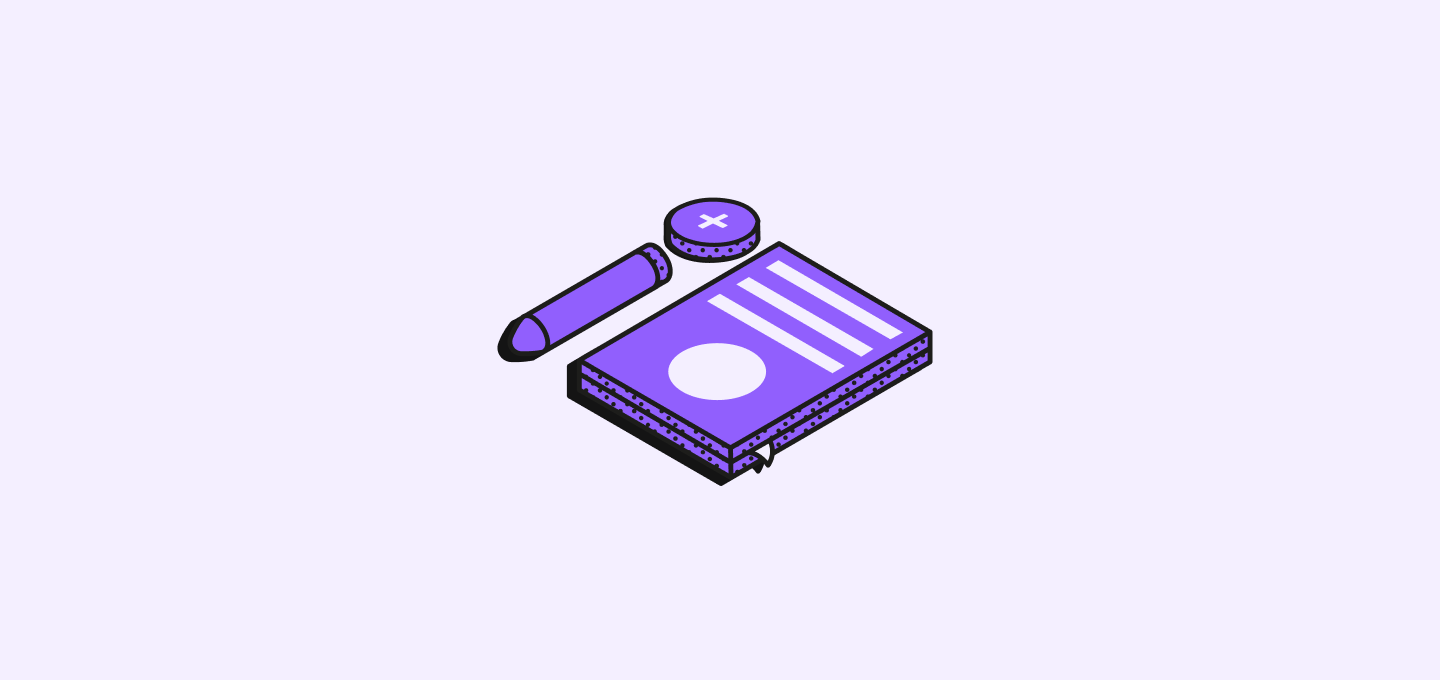Getting started
Contributing
User Guide
General guidelines
Always make sure to back up your database before starting the upgrade process by running docker exec -it <db_container_name_or_id> pg_dumpall -U <postgres_user> > databases_backup.sql.
To restore backup, run cat databases_backup.sql | docker exec -i <db_container_name_or_id> psql -U <postgres_user>.
If you used Docker Compose, follow these steps:
-
In a terminal, on the host where Twenty is running, turn off Twenty:
docker compose down -
Upgrade the version by changing the
TAGvalue in the .env file near your docker-compose. ( We recommend consumingmajor.minorversion such asv0.53) -
Bring Twenty back online with
docker compose up -d
If you want to upgrade your instance by few versions, e.g. from v0.33.0 to v0.35.0, you have to upgrade your instance sequentially, in this example from v0.33.0 to v0.34.0, then from v0.34.0 to v0.35.0.
Make sure that after each upgraded version you have non-corrupted backup.
Version-specific upgrade steps
v1.0
Hello Twenty v1.0! 🎉
v0.60
Performance Enhancements
All interactions with the metadata API have been optimized for better performance, particularly for object metadata manipulation and workspace creation operations.
We've refactored our caching strategy to prioritize cache hits over database queries when possible, significantly improving the performance of metadata API operations.
If you encounter any runtime issues after upgrading, you may need to flush your cache to ensure it's synchronized with the latest changes. Run this command in your twenty-server container:
yarn command:prod cache:flush
v0.55
Upgrade your Twenty instance to use v0.55 image
You don't need to run any command anymore, the new image will automatically care about running all required migrations.
User does not have permission error
If you encounter authorization errors on most requests after upgrading, you may need to flush your cache to recompute the latest permissions.
In your twenty-server container, run:
yarn command:prod cache:flush
This issue is specific to this Twenty version and should not be required for future upgrades.
v0.54
Since version 0.53, no manual actions needed.
Metadata schema deprecation
We've merged the metadata schema into the core one to simplify data retrieval from TypeORM.
We have merged the migrate command step within the upgrade command. We do not recommend running migrate manually within any of your server/worker containers.
Since v0.53
Starting from 0.53, upgrade is programmatically done within the DockerFile, this means from now on, you shouldn't have to run any command manually anymore.
Make sure to keep upgrading your instance sequentially, without skipping any major version (e.g. 0.43.3 to 0.44.0 is allowed, but 0.43.1 to 0.45.0 isn't), else could lead to workspace version desynchronization that could result in runtime error and missing functionality.
To check if a workspace has been correctly migrated you can review its version in database in core.workspace table.
It should always be in the range of your current Twenty's instance major.minor version, you can view your instance version in the admin panel (at /settings/admin-panel, accessible if your user has canAccessFullAdminPanel property set to true in the database) or by running echo $APP_VERSION in your twenty-server container.
To fix a desynchronized workspace version, you will have to upgrade from the corresponding twenty's version following related upgrade guide sequentially and so on until it reaches desired version.
auditLog removal
We've removed the auditLog standard object, which means your backup size might be significantly reduced after this migration.
v0.51 to v0.52
Upgrade your Twenty instance to use v0.52 image
yarn database:migrate:prod
yarn command:prod upgrade
I have a workspace blocked in version between 0.52.0 and 0.52.6
Unfortunately 0.52.0 and 0.52.6 have been completely removed from dockerHub.
You will have to manually update your workspace version to 0.51.0 in database and upgrade using twenty version 0.52.11 following its just above upgrade guide.
v0.50 to v0.51
Upgrade your Twenty instance to use v0.51 image
yarn database:migrate:prod
yarn command:prod upgrade
v0.44.0 to v0.50.0
Upgrade your Twenty instance to use v0.50.0 image
yarn database:migrate:prod
yarn command:prod upgrade
Docker-compose.yml mutation
This version includes a docker-compose.yml mutation to give worker service access to the server-local-data volume.
Please update your local docker-compose.yml with v0.50.0 docker-compose.yml
v0.43.0 to v0.44.0
Upgrade your Twenty instance to use v0.44.0 image
yarn database:migrate:prod
yarn command:prod upgrade
v0.42.0 to v0.43.0
Upgrade your Twenty instance to use v0.43.0 image
yarn database:migrate:prod
yarn command:prod upgrade
In this version, we have also switched to postgres:16 image in docker-compose.yml.
(Option 1) Database migration
Keeping the existing postgres-spilo image is fine, but you will have to freeze the version in your docker-compose.yml to be 0.43.0.
(Option 2) Database migration
If you want to migrate your database to the new postgres:16 image, please follow these steps:
- Dump your database from the old postgres-spilo container
docker exec -it twenty-db-1 sh
pg_dump -U {YOUR_POSTGRES_USER} -d {YOUR_POSTGRES_DB} > databases_backup.sql
exit
docker cp twenty-db-1:/home/postgres/databases_backup.sql .
Make sure your dump file is not empty.
-
Upgrade your docker-compose.yml to use postgres:16 image as in the docker-compose.yml file.
-
Restore the database to the new postgres:16 container
docker cp databases_backup.sql twenty-db-1:/databases_backup.sql
docker exec -it twenty-db-1 sh
psql -U {YOUR_POSTGRES_USER} -d {YOUR_POSTGRES_DB} -f databases_backup.sql
exit
v0.41.0 to v0.42.0
Upgrade your Twenty instance to use v0.42.0 image
yarn database:migrate:prod
yarn command:prod upgrade-0.42
Environment Variables
- Removed:
FRONT_PORT,FRONT_PROTOCOL,FRONT_DOMAIN,PORT - Added:
FRONTEND_URL,NODE_PORT,MAX_NUMBER_OF_WORKSPACES_DELETED_PER_EXECUTION,MESSAGING_PROVIDER_MICROSOFT_ENABLED,CALENDAR_PROVIDER_MICROSOFT_ENABLED,IS_MICROSOFT_SYNC_ENABLED
v0.40.0 to v0.41.0
Upgrade your Twenty instance to use v0.41.0 image
yarn database:migrate:prod
yarn command:prod upgrade-0.41
Environment Variables
- Removed:
AUTH_MICROSOFT_TENANT_ID
v0.35.0 to v0.40.0
Upgrade your Twenty instance to use v0.40.0 image
yarn database:migrate:prod
yarn command:prod upgrade-0.40
Environment Variables
- Added:
IS_EMAIL_VERIFICATION_REQUIRED,EMAIL_VERIFICATION_TOKEN_EXPIRES_IN,WORKFLOW_EXEC_THROTTLE_LIMIT,WORKFLOW_EXEC_THROTTLE_TTL
v0.34.0 to v0.35.0
Upgrade your Twenty instance to use v0.35.0 image
yarn database:migrate:prod
yarn command:prod upgrade-0.35
The yarn database:migrate:prod command will apply the migrations to the database structure (core and metadata schemas)
The yarn command:prod upgrade-0.35 takes care of the data migration of all workspaces.
Environment Variables
- We replaced
ENABLE_DB_MIGRATIONSwithDISABLE_DB_MIGRATIONS(default value is nowfalse, you probably don't have to set anything)
v0.33.0 to v0.34.0
Upgrade your Twenty instance to use v0.34.0 image
yarn database:migrate:prod
yarn command:prod upgrade-0.34
The yarn database:migrate:prod command will apply the migrations to the database structure (core and metadata schemas)
The yarn command:prod upgrade-0.34 takes care of the data migration of all workspaces.
Environment Variables
- Removed:
FRONT_BASE_URL - Added:
FRONT_DOMAIN,FRONT_PROTOCOL,FRONT_PORT
We have updated the way we handle the frontend URL.
You can now set the frontend URL using the FRONT_DOMAIN, FRONT_PROTOCOL and FRONT_PORT variables.
If FRONT_DOMAIN is not set, the frontend URL will fall back to SERVER_URL.
v0.32.0 to v0.33.0
Upgrade your Twenty instance to use v0.33.0 image
yarn command:prod cache:flush
yarn database:migrate:prod
yarn command:prod upgrade-0.33
The yarn command:prod cache:flush command will flush the Redis cache.
The yarn database:migrate:prod command will apply the migrations to the database structure (core and metadata schemas)
The yarn command:prod upgrade-0.33 takes care of the data migration of all workspaces.
Starting from this version, twenty-postgres image for DB became deprecated and twenty-postgres-spilo is used instead.
If you want to keep using twenty-postgres image, simply replace twentycrm/twenty-postgres:${TAG} with twentycrm/twenty-postgres in docker-compose.yml.
v0.31.0 to v0.32.0
Upgrade your Twenty instance to use v0.32.0 image
Schema and data migration
yarn database:migrate:prod
yarn command:prod upgrade-0.32
The yarn database:migrate:prod command will apply the migrations to the database structure (core and metadata schemas)
The yarn command:prod upgrade-0.32 takes care of the data migration of all workspaces.
Environment Variables
We have updated the way we handle the Redis connection.
- Removed:
REDIS_HOST,REDIS_PORT,REDIS_USERNAME,REDIS_PASSWORD - Added:
REDIS_URL
Update your .env file to use the new REDIS_URL variable instead of the individual Redis connection parameters.
We have also simplified the way we handle the JWT tokens.
- Removed:
ACCESS_TOKEN_SECRET,LOGIN_TOKEN_SECRET,REFRESH_TOKEN_SECRET,FILE_TOKEN_SECRET - Added:
APP_SECRET
Update your .env file to use the new APP_SECRET variable instead of the individual tokens secrets (you can use the same secret as before or generate a new random string)
Connected Account
If you are using connected account to synchronize your Google emails and calendars, you will need to activate the People API on your Google Admin console.
v0.30.0 to v0.31.0
Upgrade your Twenty instance to use v0.31.0 image
Schema and data migration:
yarn database:migrate:prod
yarn command:prod upgrade-0.31
The yarn database:migrate:prod command will apply the migrations to the database structure (core and metadata schemas)
The yarn command:prod upgrade-0.31 takes care of the data migration of all workspaces.
v0.24.0 to v0.30.0
Upgrade your Twenty instance to use v0.30.0 image
Breaking change: To enhance performances, Twenty now requires redis cache to be configured. We have updated our docker-compose.yml to reflect this. Make sure to update your configuration and to update your environment variables accordingly:
REDIS_HOST={your-redis-host}
REDIS_PORT={your-redis-port}
CACHE_STORAGE_TYPE=redis
Schema and data migration:
yarn database:migrate:prod
yarn command:prod upgrade-0.30
The yarn database:migrate:prod command will apply the migrations to the database structure (core and metadata schemas)
The yarn command:prod upgrade-0.30 takes care of the data migration of all workspaces.
v0.23.0 to v0.24.0
Upgrade your Twenty instance to use v0.24.0 image
Run the following commands:
yarn database:migrate:prod
yarn command:prod upgrade-0.24
The yarn database:migrate:prod command will apply the migrations to the database structure (core and metadata schemas)
The yarn command:prod upgrade-0.24 takes care of the data migration of all workspaces.
v0.22.0 to v0.23.0
Upgrade your Twenty instance to use v0.23.0 image
Run the following commands:
yarn database:migrate:prod
yarn command:prod upgrade-0.23
The yarn database:migrate:prod command will apply the migrations to the Database.
The yarn command:prod upgrade-0.23 takes care of the data migration, including transferring activities to tasks/notes.
v0.21.0 to v0.22.0
Upgrade your Twenty instance to use v0.22.0 image
Run the following commands:
yarn database:migrate:prod
yarn command:prod workspace:sync-metadata -f
yarn command:prod upgrade-0.22
The yarn database:migrate:prod command will apply the migrations to the Database.
The yarn command:prod workspace:sync-metadata -f command will sync the definition of standard objects to the metadata tables and apply to required migrations to existing workspaces.
The yarn command:prod upgrade-0.22 command will apply specific data transformations to adapt to the new object defaultRequestInstrumentationOptions.
Noticed something to change?
As an open-source company, we welcome contributions through Github. Help us keep it up-to-date, accurate, and easy to understand by getting involved and sharing your ideas!

